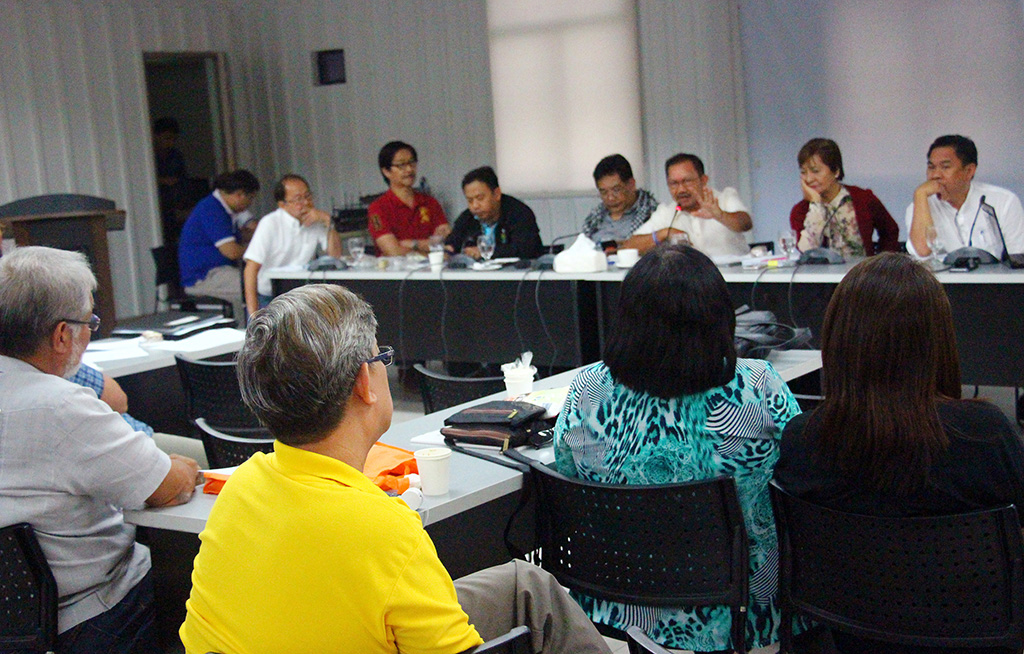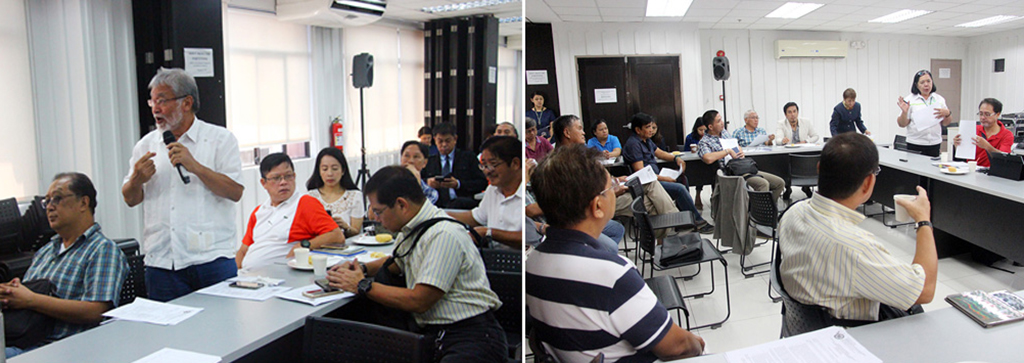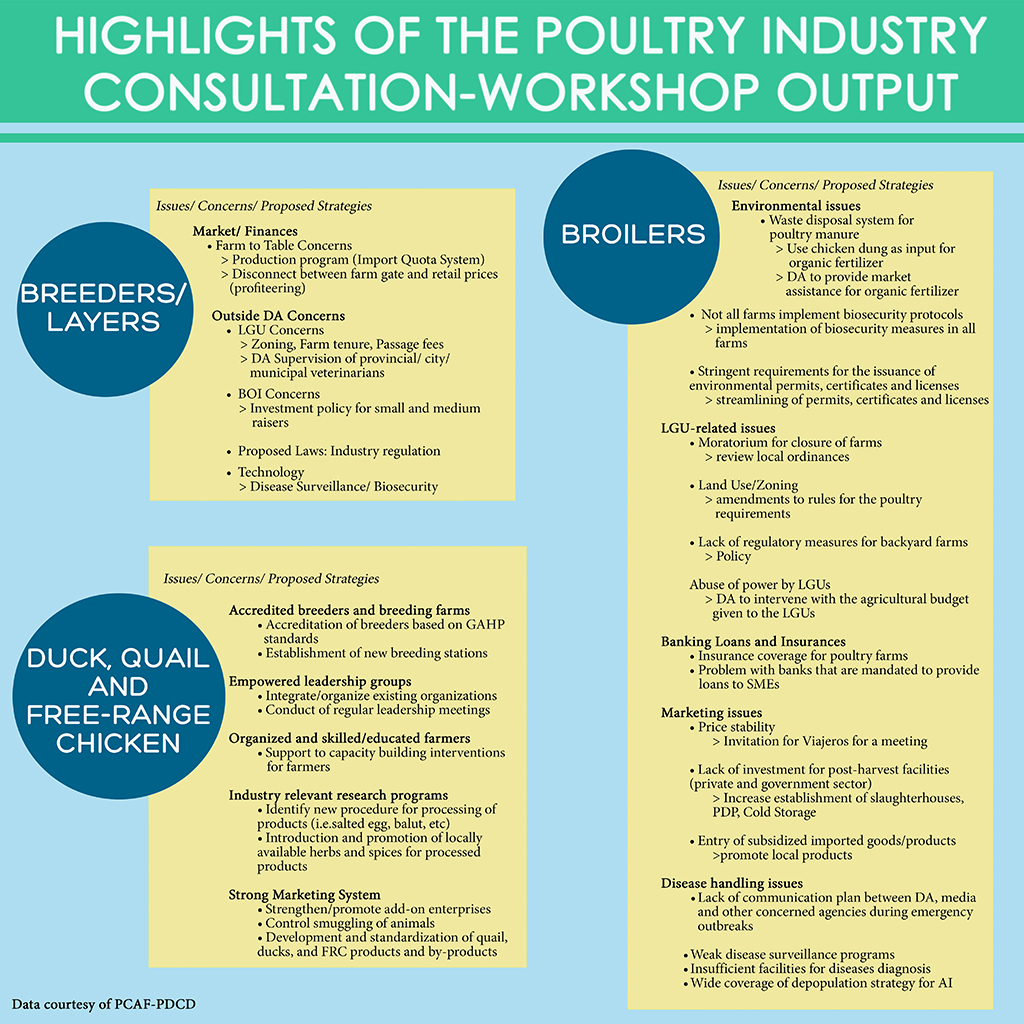
After Avian Influenza (AI) undermined the Philippine poultry industry in August 2017, the industry is slowly recovering its loss in time for the Holiday season.
A report from the Bureau of Animal Industry (BAI), published in BusinessMirror, showed that the average farm gate price of broiler chicken, as of October 16, has reached PhP92.07 per kilogram. This is 65.89 percent increase from the PhP55.50 per kilogram price level recorded in September.
During the height of the incident, President Rodrigo Duterte commended the Department of Agriculture (DA) officials for their “quick” and “decisive” actions in containing the AI incident.
Despite the continuing improvement of the industry, Agriculture Secretary Emmanuel Piñol called for a dialogue with the Philippine Council for Agriculture and Fisheries (PCAF) Committee on Poultry, Livestock and Feed Crops (CPLFC), and other industry stakeholders on September 13 for a post-crisis assessment on how the department handled the situation.
“We need to sit down because I would like the sector to look at what happened. Ano ba yung (natutunan) natin from what we have experienced? Ano ang epekto ng pagtama ng krisis na ito sa ating industriya?” said Sec. Piñol in the dialogue.
The activity served as a venue for the government agencies and private sectors to update protocols and improve the implementing strategies on the AI protection program of the DA.
It was recalled that the first AI outbreak was confirmed by Sec. Piñol in San Luis, Pampanga on August 11, while another incident immediately followed at the Jaen and San Isidro in Nueva Ecija on August 18.
Lessons Learned and Recommendations

More than 50 participants from the CPLFC and industry-related companies attended and gave comments and suggestions on the efficiency of the government’s strategy in dealing with the first case of AI.
According to the participants, they understand that the existing protocol of the DA used in handling AI crisis needs improvement, however it was raised that there is a lack of effective protocol in dealing with the virus and other emergencies that emerged during the time of incident.
“Hindi ko masasabing hindi tayo preparado sa nangyaring iyon. These are lessons learned, but looking back at a time, that was the protocol that we had. You have to understand where I was coming from, and I assure you that all of my actions were based on the existing protocol at that time,” Sec. Piñol explained.
It was also emphasized that the absence of an effective and comprehensive communication plan with the media and other involved departments created misinformation and affected other poultry products that have not caught the virus yet.
The participants also pointed out that there is a weak compliance of farms on the accreditation requirements and difficulty in complying with stringent requirements for poultry-related insurance.
Also one of the predicaments of the stakeholders is the delegation of functions from the national level down to the local government. Municipal veterinarians and agriculturists are under the Local Government Units (LGU), which limits faster access of the DA authorities to reports on cases like AI.
The group also mentioned that the disconnected price of farm gate prices compared to the retail prices weakened the industry. According to them, live weight of chicken could cost PhP30 to PhP50, this is way lower compared to the PhP120 to PhP130 when retailed.
To address these issues and concerns, the stakeholders also gave their recommendations and suggestions.
The participants also requested the Secretary to consider decreasing the one kilometer quarantine zone and adopt compensatory strategy based on implemented biosecurity protocols to encourage reporting of future cases of disease outgrowth.
In the course of the AI outbreak, the stakeholders saw that there is a need to increase support on waste management programs to address issues on diseases and land use. On the other hand, inclusion of poultry in insurance programs of the department should also be considered.
To immediately address some of the problems raised in the dialogue, Sec. Piñol gave directives to existing related memorandums issued by BAI.
These includes the memorandum that requires installation of footbaths and other biosecurity protocols in all ports and airports, and the withdrawal of the deputation of quarantine officers from the LGUs and hire personnel who will report directly to DA.
Consultation-Workshop

Days after the dialogue, the industry stakeholders conduct a consultation-workshop on September 19 to discuss, consolidate and resolve problems of the poultry industry. The output of the activity will be included in the updating of the five-year poultry industry roadmap.
The workshop also encouraged the stakeholders to come up with policy recommendations or resolutions and proposed strategic interventions to address the concerns of the industry.
Aside from presenting the output of the roadmap to the DA officials, it will also be showed to the industry-related officials and representatives from the Department of Health, Department of Trade and Industry, Department of Interior and Local Government, House of Representatives and the Senate of the Philippines.
“(The Roadmap of Poultry and Livestock) is welcome. (However) we should realize that the quorum and consultations are just initial steps. The follow through will be more important. Now that the Secretary has committed that he will be present(ing the output) to other cabinet members, this time this might be different,” Atty. Elias Jose “Bong” Inciong of PCAF-CPLFC said in an interview. -JC











